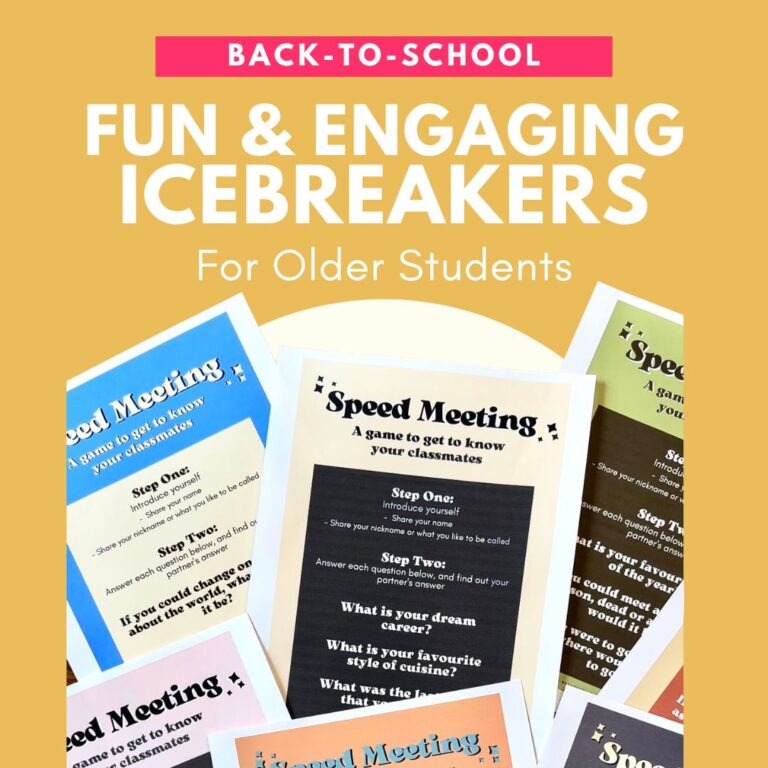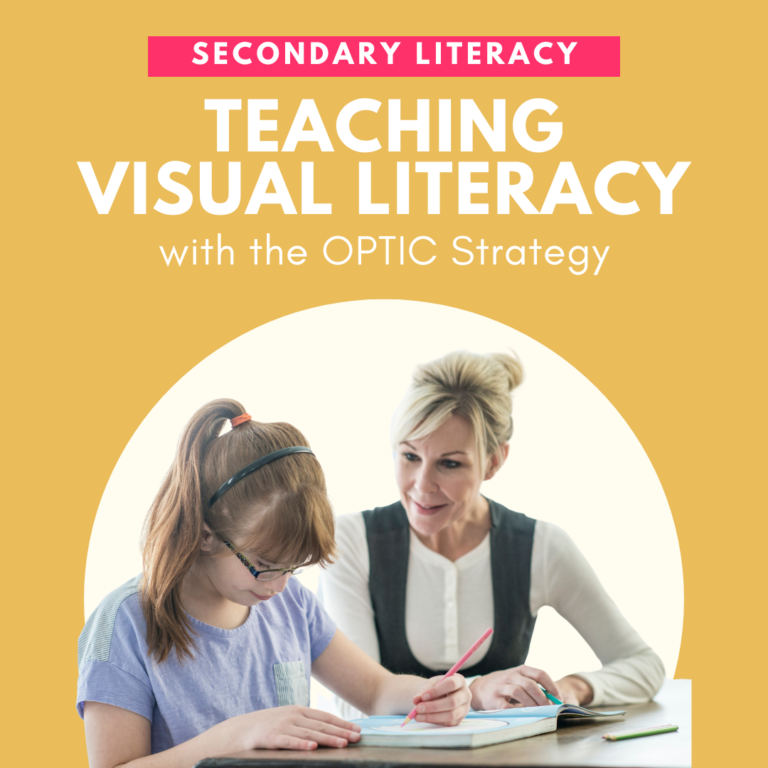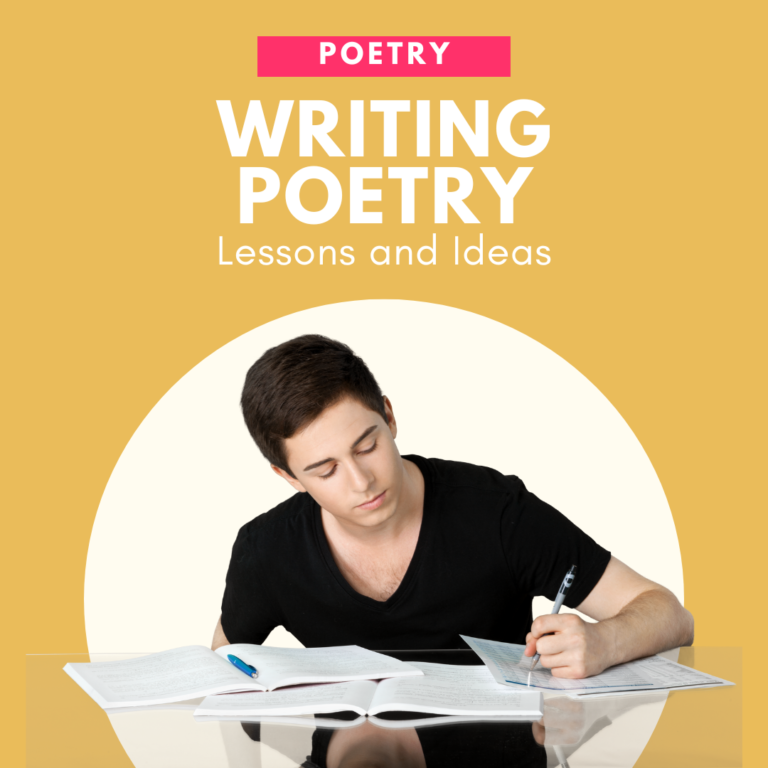When it comes to learning, end-of-the-year reflection questions are a crucial step that is sometimes overlooked. Reflection is a useful tool in our classrooms, offering students the opportunity to think deeply about their learning.
Reflection is also important for teachers, too! Facilitating an end-of-the-year reflection with our students can help us refine our curriculum and our teaching practices. This blog post explores some of the many benefits of end of the year reflection. It will also offer you some end-of-the-year reflection questions for students.
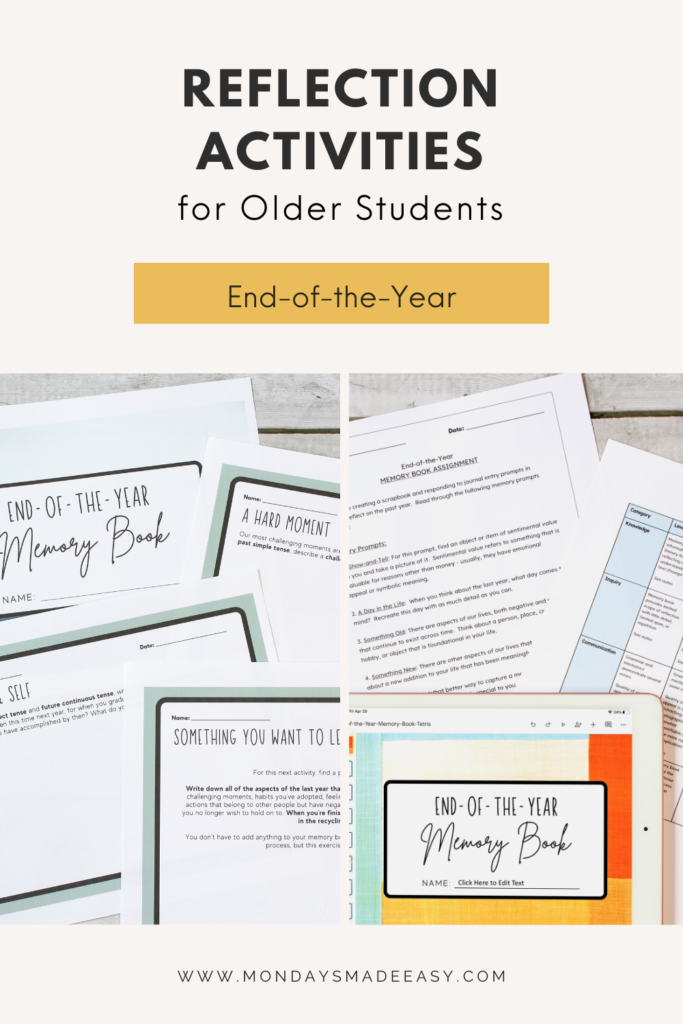
Why is end of the year reflection important?
Reflection is a beneficial practice in learning, no matter what subject area you teach. This is because end-of-the-year reflection promotes metacognitive learning. Simply put, metacognitive learning involves students intentionally thinking about their learning process.
There is a lot of research supporting the benefits of metacognitive learning. For one, it celebrates students’ accomplishments. It also inspires a growth mindset by demonstrating to students that they can overcome academic challenges. Finally, it provides students with the opportunity to develop a positive attitude towards learning and school.
End-of-the-year reflection is also important from a teacher’s perspective. This is a valuable time to collect feedback from students about what they enjoyed and what they found challenging. Student feedback can help you further develop your curriculum and refine your teaching practice.
The right language-aligned reflection activities can also prompt literary analysis and promote extracurricular reading. This Literary Quotes Reflection Journal facilitates close reading and inspires personal and literary reflection through the exploration of timeless quotes from literature. It includes 24 powerful quotes for students to explore. These quotes appeal to popular teenage themes and interests and are sure to inspire deep reflection and analysis. Each quote was selected to represent both classic and contemporary literature while featuring diverse authors, including Toni Morrison, Paulo Coehlo, J.R.R. Tolkien, Sandra Cisneros, Ocean Vuong, and more.
What do you reflect on for the school year?
Given the many benefits of metacognitive learning, reflecting on academic growth is worth prioritizing. You can prompt students to consider where they felt challenged in your subject area. When exploring academic challenges, it is important for students to recognize their ability in overcoming hardships. This helps to promote a growth mindset. You can prompt students to explore why they felt challenged, as well as the steps they took to meet this challenge.
If students still feel defeated by their academic hardships, you can direct them to look for solutions: learning supports, modifications, extra practice, and extra help are all options that students can be encouraged to explore.
You can also prompt students to consider their academic wins, too. What did students manage to accomplish in your subject area? Why is this accomplishment particularly important? What steps did students take to achieve this goal? These prompts help students reflect on their ability to problem-solve. They also help to foster a positive attitude towards academics.
Another great benefit of end of the year reflection is that it can help support your teaching practices. Student feedback about your course is valuable: it can help you to anticipate the needs of your future students and to adjust your curriculum accordingly. You can also pass student feedback along to colleagues that will be teaching your students next year.

End of the Year Social-Emotional Reflection Questions
Reflection beyond academics is also important. An end of the year reflection can explore many areas of a student’s life. When exploring social-emotional writing prompts, be sure to nurture student-teacher confidentiality and leave questions open-ended in order to respect students’ privacy.
Here are a few examples for end-of-the-year reflection questions that you can use as writing prompts for your students:
- How have your social relationships with peers and teachers influenced your overall experience this year? Reflect on specific instances or interactions that have positively impacted you.
- What personal strengths did you rely on to overcome challenges and achieve your academic goals? How can you continue to build upon these strengths in the upcoming year?
- In what ways did you demonstrate resilience and perseverance throughout the school year? How did these qualities contribute to your academic success?
- Reflect on a time when you took a risk or stepped out of your comfort zone in your academic pursuits. How did this experience shape your growth as a student?
- How did you prioritize and manage your time effectively this year? What strategies did you find most helpful, and what adjustments could you make in the future to further improve your time management skills?
- Reflect on any setbacks or disappointments you faced academically this year. How did you handle these situations, and what did you learn from them?
End of the Year Memory Books for Students
An end of the year memory book is a great way to include a combination of academic reflection questions and social-emotional writing prompts. This memory book template includes 11 end-of-the-year writing prompts to facilitate mindful reflection. Students will have the opportunity to congratulate themselves for their hard work while they practice letting go of any difficult moments they may have encountered. They will also share photos and showcase important mementos from the school year.
To integrate your English Language Arts curriculum, an end of the year writing prompt about literary texts is also included. Students will also practice using different verb tenses while they complete their end of the year reflection.
This memory book also includes assignment instructions to guide students through each of the end of year writing prompts. Students can reference the assignment instructions and 4-level rubric while they complete this end of the year reflection. An editable rubric has also been provided to meet the needs of your classroom.
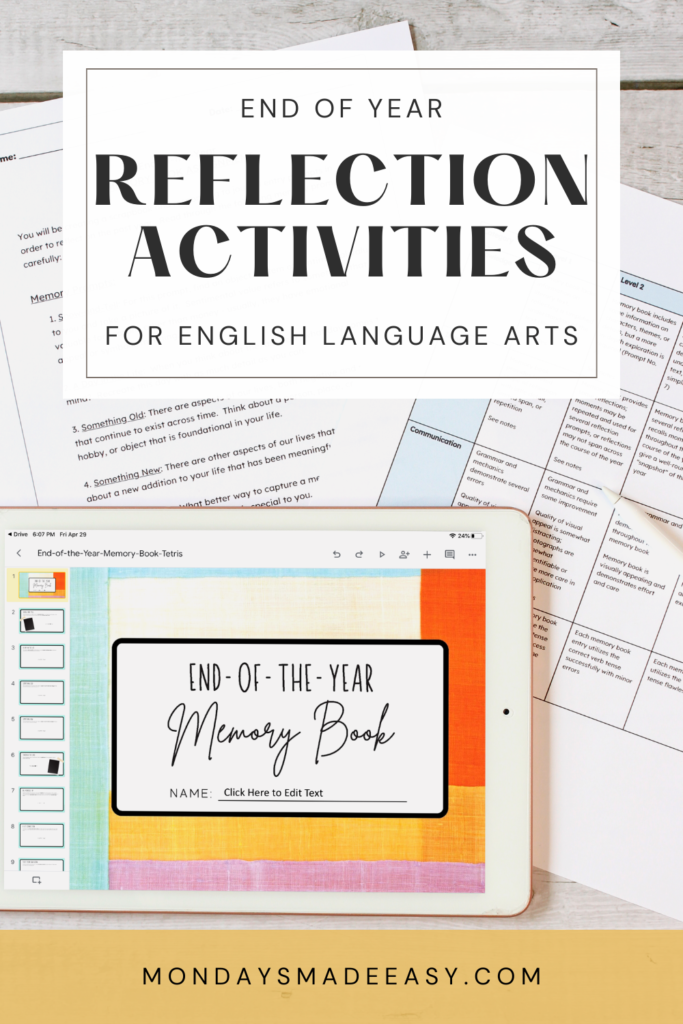
Taking Time to Reflect
End-of-the-year reflection questions are a meaningful aspect of student learning. When students are prompted to consider their academic challenges and personal growth, they are better equipped to take control of their learning. They will also have the opportunity to manage expectations for the coming year. End-of-the year-reflection questions are beneficial for teachers too because we can learn a lot from our students’ feedback. Needless to say, reflection should be an integral part of our end of the year activities in the classroom.

